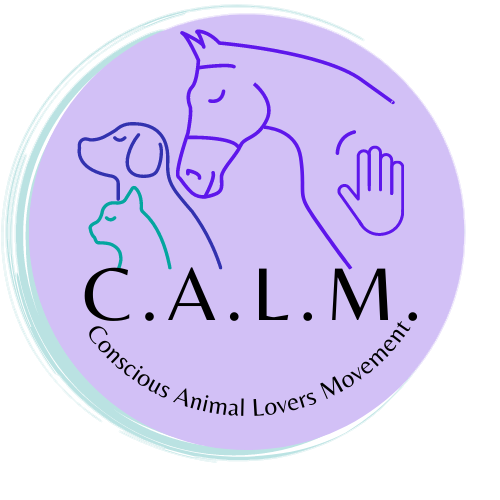Allen M. Schoen, D.V.M., M.S.
Heart problems in dogs and cats can be very serious and life threatening and often present without our awareness or prior warning. They can vary from congenital or hereditary problems that they are born with to problems of old age such as congestive heart failure in dogs or secondary to other conditions such as hyperthyroidism (overactive thyroid) in cats. All of these conditions need to be diagnosed by your veterinarian and managed properly with conventional medications or surgery if required. Early symptoms of heart conditions that might tip you off that there may be a problem include increased lethargy, depression, weakness, weight loss, breathing difficulties, panting excessively with minimal or no exercise and a progressive cough. Sometimes, there will be no symptoms and your pet will all of a sudden collapse. At times like this, you need to rush your pet to the nearest veterinarian or emergency clinic. We can not review all the different types of heart problems in this article, but these warning signs should make you aware that you should have your fourlegged friend see their veterinarian. Other introductory books on dog and cat health care review the many causes of heart disease.
The question then arises, is there a natural approach to help prevent minor heart problems from progressing or at least slowing down the progression of the disease and help support the heart when there is a more serious problem. The good news is that there are indeed natural approaches to help support the heart. However, I cannot emphasize enough that these are not meant to replace conventional medicine, but to complement it and support the heart naturally.
There is research suggesting that different herbs and nutrients can benefit heart and actually prevent heart disease. For instance, prior to 1987, dilated cardiomyopathy was one of the most commonly diagnosed heart diseases in cats. This cardiomyopathy was apparently secondary to a nutritional deficiency of the nutrient taurine in cat food. Once the cause of this was discovered and cat foods began supplementing with taurine, dilated cardiomyopathy is now rare in cats. Another nutrient, a vitamin like compound, that appears to be beneficial for the heart is L-carnitine and many veterinarians will recommend supplementing with carnitine if your pet has a heart problem. Normal heart function depends on adequate concentrations of carnitine. Dr. Murray in his book, “Encyclopedia of Nutritional Supplements” offers the comparison that a ” deficiency in carnitine in the heart would be similar to driving an automobile without a fuel pump. There may be plenty of fuel, but there is no way to get it to the engine”. Several studies have documented that L-carnitine can improve heart function in patients with congestive heart failure and reduce the amount of conventional antiarrhythmic drugs in patients with arrhythmias. L-carnitine appears to be extremely safe with no side effects reported. Also, there seems to be no adverse interactions between carnitine and any drug or nutrient. The nutrient choline might actually help conserve carnitine and your veterinarian should be aware of that. It actually seems to work synergistically with coenzyme Q-10 another nutrient that is beneficial for the heart. Dosages vary and you should consult your veterinarian.
Coenzyme Q 10, also known as ubiquinone is another beneficial nutrient for the heart. Dr. Murray also states that ” the role Co-Q10 is similar to the role of a spark plug in a car engine and just as the car cannot function without the initial spark, the body cannot function without CoQ10″. It is chemically related to Vitamins E and K. It is essential for producing energy in the body and is an antioxidant as well. It has been found to be beneficial for the treatment of congestive heart failure, cardiomyopathy as well as for periodontal disease and immune deficiencies and cancer. It sometimes takes as long as eight weeks before beneficial effects are evident. In one study on human patients, Dr. Murray quotes a team of cardiologists that “CoQ10 is a safe and effective adjunctive treatment for a broad range of cardiovascular diseases, producing gratifying clinical responses while easing the medical and financial burden of multidrug therapy.” The normal dose for pets is 10mg./ 15 pounds of body weight per day. I incorporate this into all my natural protocols for heart disease.
There are also different trace minerals that are beneficial for the heart including selenium, magnesium and potassium. Selenium functions primarily as a component of an antioxidant and works synergistically with vitamin E in preventing damage to cells. Low levels of selenium have been linked to a higher risk for heart disease as well as others including cancer. Food levels of selenium are often linked to levels in the soil from which they were grown and many soils throughout the world appear to be selenium deficient these days. A suggested dose for a 50 to 75 lb. dog would be about 50 micrograms of selenium per day. Magnesium is critical to many cellular functions as has often been called “nature’s calcium channel-blocker” according to Dr. Murray. Most cardiovascular disease can benefit from magnesium supplementation including congestive heart failure and cardiomyopathy. Potassium along with sodium and chloride are electrolytes, mineral salts, that are intricately related to the proper function of the heart and other muscles. In my practice, rather than supplementing with one or two specific minerals, I prefer using a balanced mineral formula. The reason for this is that single mineral taken at high dosages can sometimes impair the absorption of other vital minerals. Check with your veterinarian on a balanced vitamin and mineral supplement for your pet.
Vitamin E is essential for proper heart function. It acts primarily as an antioxidant protecting against cell damage. It has been used for prevention of cardiomyopathy and other heart problems. A typical dosage for a 50 to 75 lb. dog is 100 to 400 I.U. per day. It is basically a safe vitamin to take and has ann excellent safety record. It interacts with other antioxidant nutrients such as vitamin C and selenium.
In addition to nutrients and trace minerals, there are certain herbs that can be beneficial for the heart including hawthornberry, ginger, garlic and an ayurvedic (Indian) herb called Coleus. Hawthornberry is an excellent heart tonic. It works to increase cardiovascular health. I have used it clinically for years as part of a natural approach and it definitely appears to help dogs and cats with heart problems. It can potentiate the effect of digoxin, a very strong heart medication, so you want to make sure you let your veterinarian know you are using it on your pet if they are on digoxin, because you may need to decrease your dosage of conventional medication. Ginger is normally used for gastrointestinal problems and motion sickness, but it has also been found to be a heart tonic for small animals.
The natural approach to heart disease using a combination of minerals, vitamins, herbs and other nutrients can definitely be an excellent adjunct to conventional medicine. I have seen dogs and cats live much longer , happier and better quality lives with fewer side effects using the natural approach . However, it needs to be used in conjunction with conventional medications with serious heart problems. Love & happiness are also essential ingredients for the treatment of heart disease! Enjoy!
If you would like a consultation with one of my Veterinary associates in the greater New York or Connecticut region, you can go to the practice part of my website, call the appropriate office and make an appointment with one of them to see how we can help your kindred spirit.
No article can replace the services of a trained veterinarian. This article is not intended to encourage treatment of illness, disease, or other medical problems by the layman. Any application of the recommendations set forth in this article is solely at the reader’s discretion and risk. You should consult a veterinarian concerning any veterinary medical or surgical problem. If a veterinarian is caring for your pet, for any condition, he or she can advise you about information described in this article.

